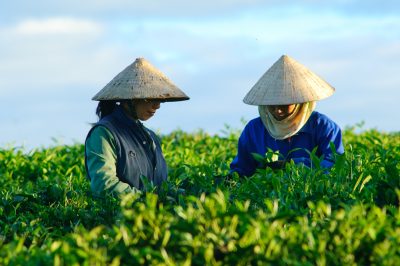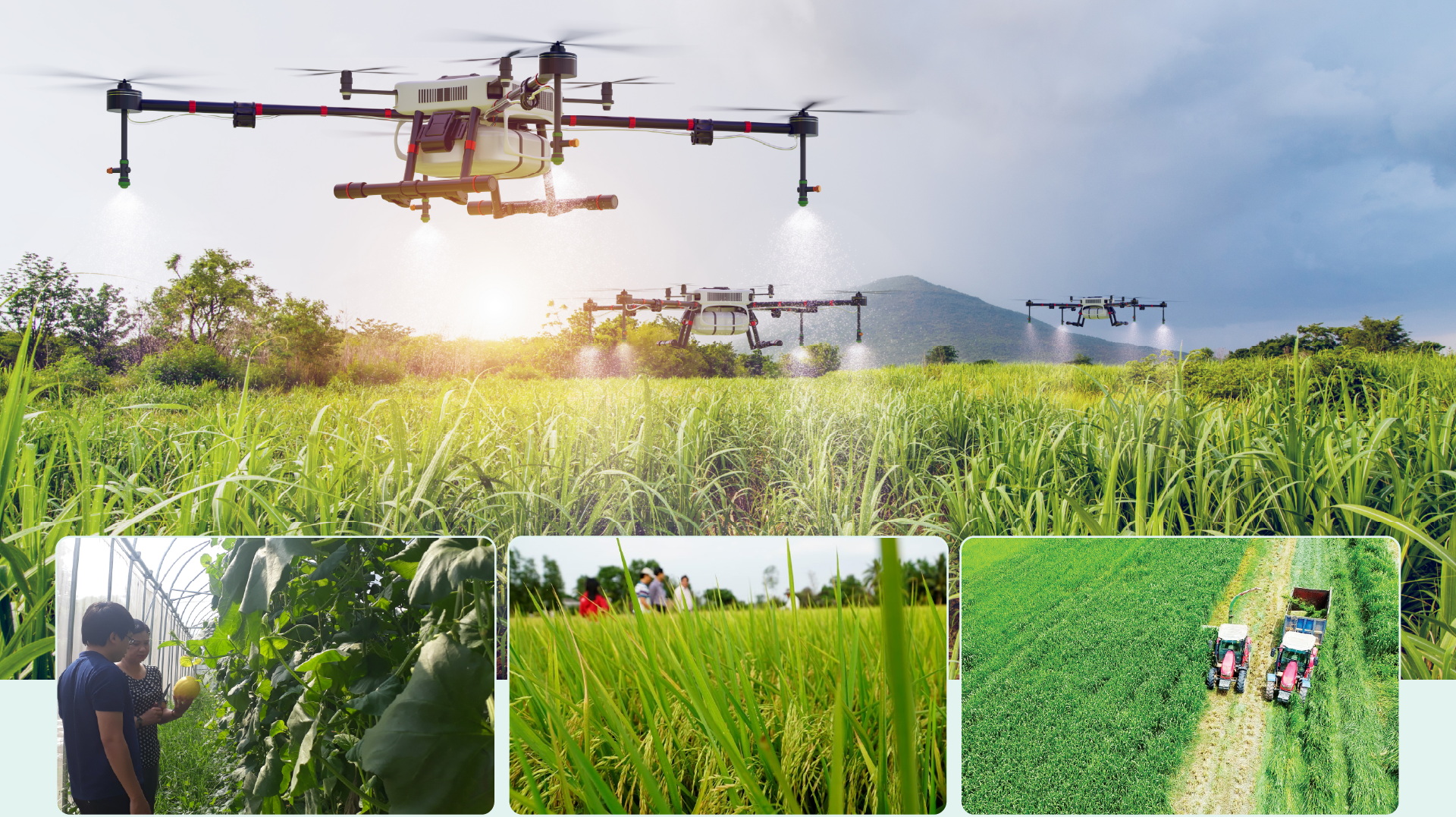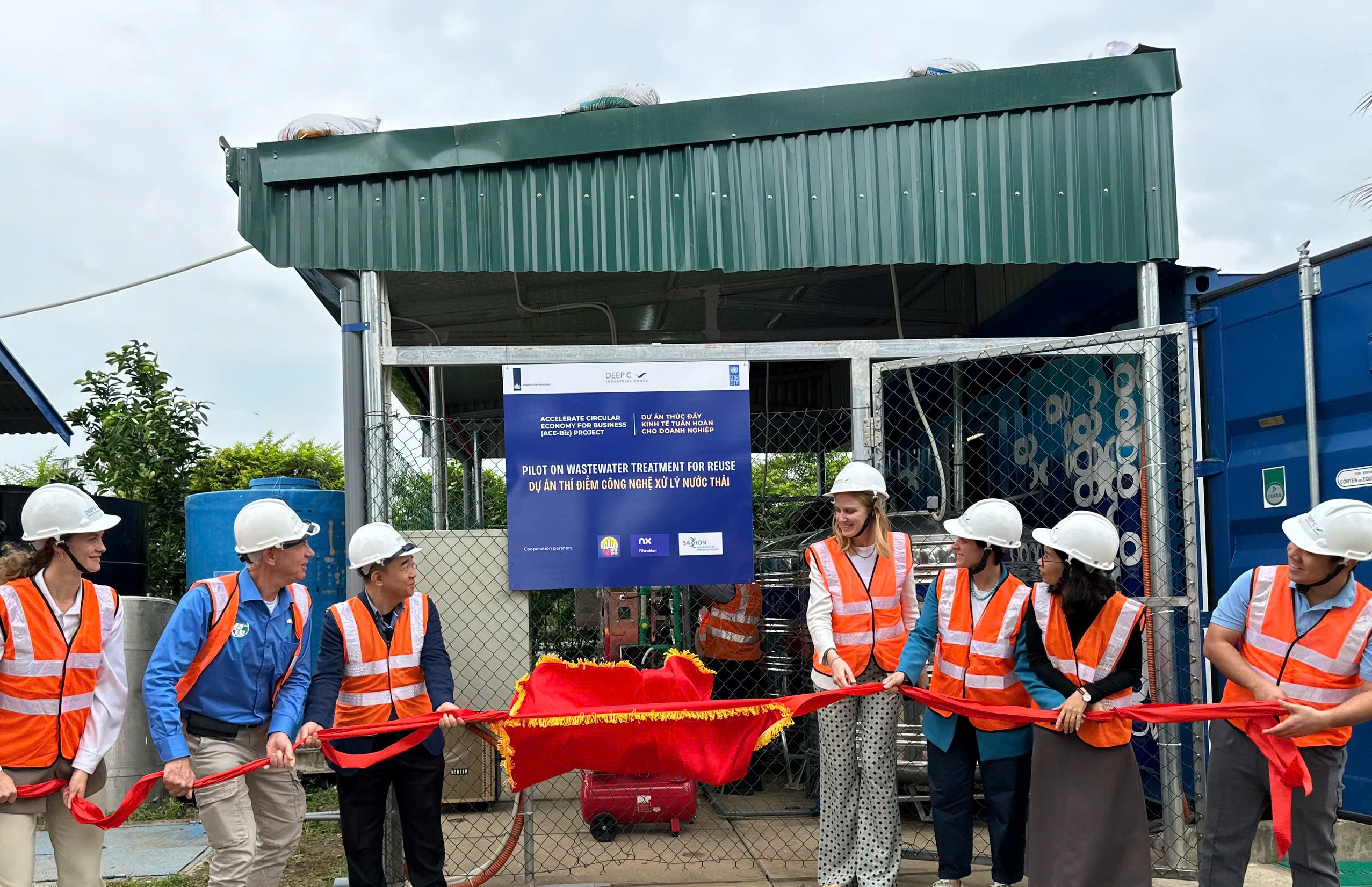Hanoi, August 1, 2023 – A significant event aiming to foster sustainable production and consumption, titled “Promoting Sustainable Production and Consumption in the Modern Distribution System,” took place today in Hanoi. The forum was organized as part of the series of events under the National Action Program on Sustainable Production and Consumption, running from 2021 to 2030. The collaborative effort was led by the National Competition Commission and the Office of Sustainable Production and Consumption, both under the Ministry of Industry and Trade, in partnership with VTC Digital Television.
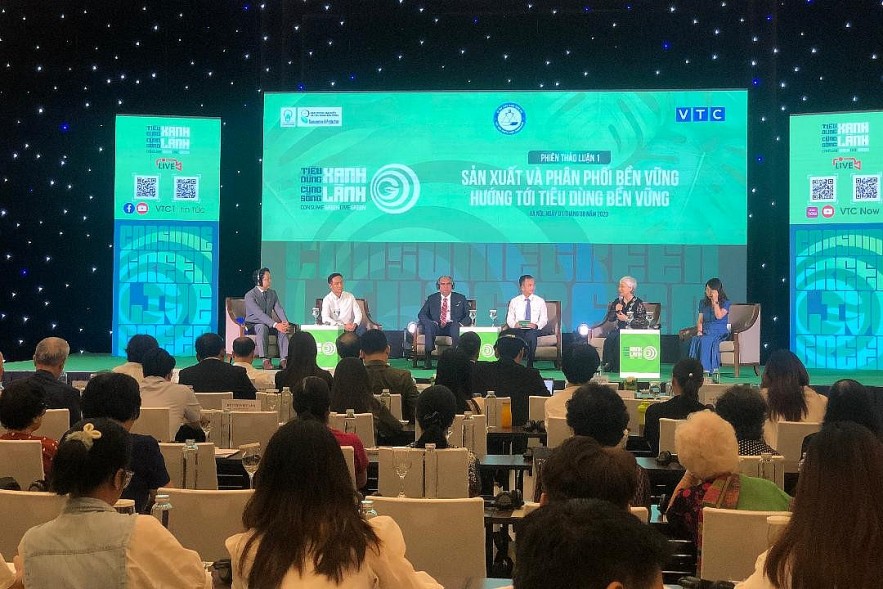
View of the forum. Photo: Hai Anh
Distinguished attendees included representatives from various government departments, such as the Ministry of Industry and Trade’s National Competition Commission and Department of Energy Efficiency and Sustainable Development, the Ministry of Information and Communications’ Press Department, the Institute of Strategy, Policy on Natural Resources and Environment. International participants from the United Nations Development Programme (UNDP) and the Embassies of Norway and Australia also graced the event. In addition, experts from international organizations, domestic and foreign businesses, consumers, and media representatives were present to discuss and analyze key topics related to sustainable production and consumption.
The Ministry of Industry and Trade has been actively pursuing sustainable production and consumption initiatives, and to that end, it submitted Decision 889/QD-TTg to the Prime Minister for approval. The decision outlines the National Action Plan on Sustainable Production and Consumption for the period 2021-2030. It highlights the importance of efficient and sustainable resource management, the development of environmentally friendly, renewable, reusable, and recyclable materials and products, as well as the promotion of sustainable production and consumption through innovation and the adoption of circular economy practices in Vietnam. Furthermore, the National Assembly passed the amended Law on Protection of Consumers’ Interests in June 2023, which introduces additional regulations and policies to promote sustainable production and consumption.
However, despite these efforts, challenges persist in the production and distribution of environmentally friendly products to consumers, as well as in encouraging sustainable consumption habits and behaviors among the public. These issues were at the forefront of discussions during the forum.
The event also saw experts share international experiences in promoting sustainable consumption and raising consumer awareness. Mr. Andrew Goledzinowski, the Australian Ambassador to Vietnam, shed light on Australia’s National Plastics Plan, which aims to increase plastic recycling, find alternatives to unnecessary plastics, and reduce the environmental impact of plastic usage. The ambassador stressed the significance of consumer decisions in influencing plastic consumption and recycling rates. Accordingly, educating the community and empowering consumers to make informed choices and recycle properly is a key focus for the Australian government.
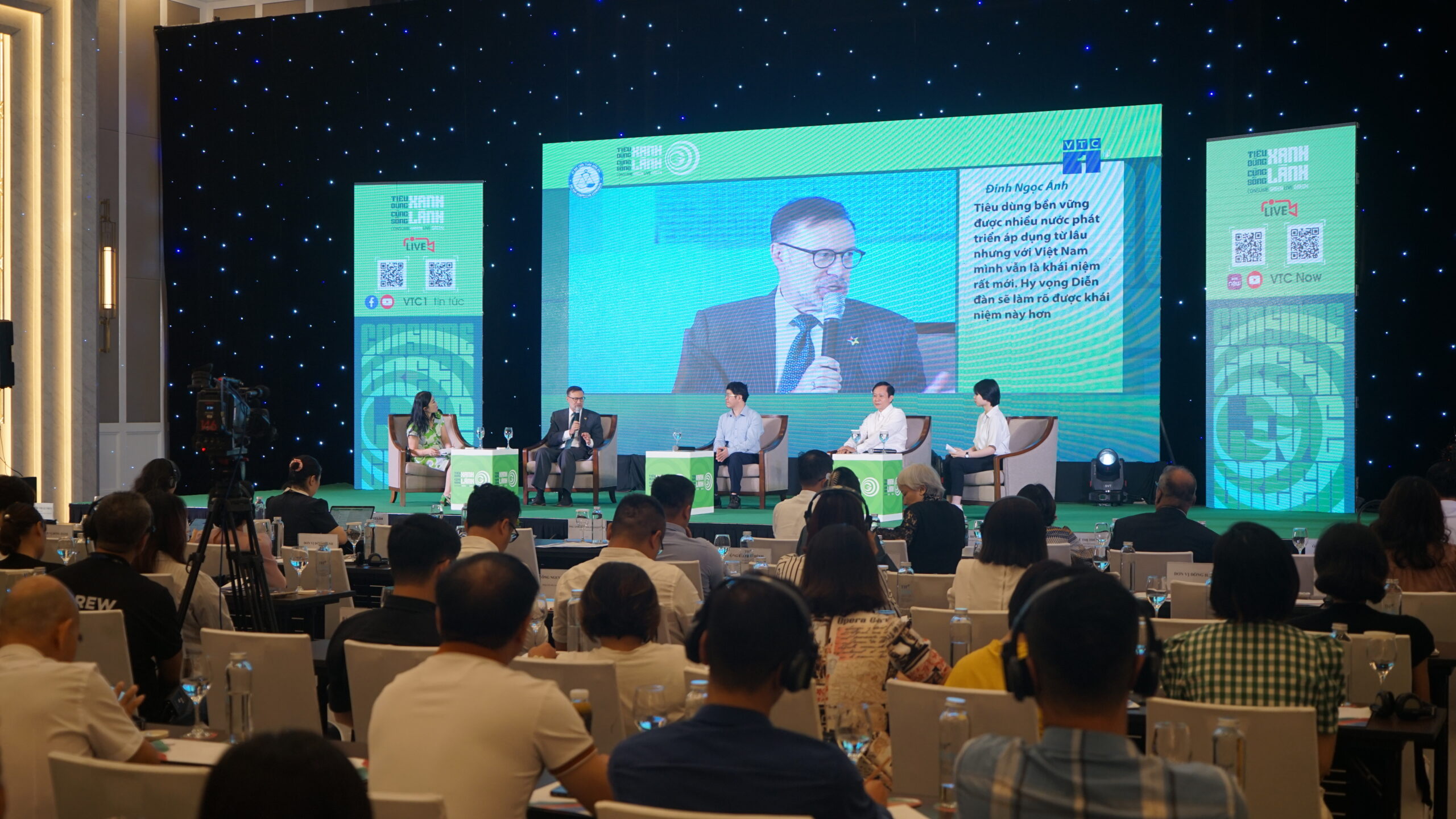
Mr. Andrew Goledzinowski, Australian Ambassador to Vietnam is speaking.
Recent surveys further underscore the importance of sustainable consumption. A 2023 Nielsen IQ survey revealed that a substantial portion of consumers in Vietnam are already adopting sustainable practices. For instance, 49% of respondents bring their own recycled bags, 47% make conscious choices to buy only necessities to minimize waste, and 45% diligently sort recyclables and save electricity. These results indicate that consumers expect practical environmental initiatives from businesses, with 38% rating such efforts as extremely important.
Despite growing awareness, there remains a gap between awareness and action. Challenges in accessing sustainable, environmentally friendly products are prevalent, partly influenced by social norms. According to Mr. Dao Xuan Lai, Head of the Climate Change and Environment Department, some consumers in Vietnam are not fully aware of the environmental and health impacts of their consumption habits. “Food waste, for example, stems from cultural attitudes like “saving face” mentality, leading to excessive preparation of food and its subsequent disposal. his, in turn, contributes to approximately 10% of climate change emissions. To address this issue, it is imperative to implement extensive educational programs on sustainable consumption to enlighten people about the true impact of their choices on the environment and society”, said Mr. Lai.
Sustainable production and consumption have become crucial global trends as resources continue to deplete. The “Promoting Sustainable Production and Consumption in the Modern Distribution System” forum emerges as a crucial platform for fostering collaboration among stakeholders—managers, producers, distributors, and consumers—towards building a green, circular, and environmentally-friendly economy. The event not only unifies voices but also propels collective actions in safeguarding the planet for future generations.

